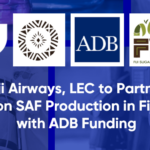Biogas Conversion to RNG
Biogas conversion to Renewable Natural Gas (RNG), also known as biomethane or green gas, is a process that involves upgrading biogas to a higher methane content, similar to natural gas. RNG is a renewable and sustainable energy source because it is produced from organic materials like agricultural waste, sewage, and landfill gas. The conversion process typically begins with biogas generated through the anaerobic digestion of organic materials, such as crop residues, food waste, animal manure, or wastewater sludge. (Anaerobic digestion is a biological process where microorganisms break down organic matter without oxygen, producing biogas as a byproduct). Biogas is primarily composed of methane (CH4), carbon dioxide (CO2), and trace amounts of other gases such as hydrogen sulfide (H2S) and water vapor (H2O). Its methane content typically ranges from 50% to 70%, making it suitable for energy applications.
Before biogas can be converted into RNG, it often undergoes pretreatment to remove impurities and contaminants. This includes eliminating moisture, hydrogen sulfide, and other trace gases that can corrode equipment or affect the quality of the RNG. Finally, the conversion process involves upgrading the biogas to meet natural gas pipeline specifications, which typically require 95% or higher methane content. This is achieved through Pressure Swing Adsorption (PSA), membrane separation, or cryogenic separation, where the biogas is cooled to extremely low temperatures, causing CO2 and other components to freeze and separate from the methane.
After conversion, the RNG must be monitored for methane content and purity to meet pipeline specifications and safety standards. Once the RNG has been successfully upgraded, it can be injected directly into the natural gas grid, where it becomes indistinguishable from fossil natural gas. RNG can be distributed and used like conventional natural gas for heating, electricity generation, and transportation. In addition to grid injection, RNG can be used as a fuel for compressed natural gas (CNG) or liquefied natural gas (LNG) vehicles. This provides a sustainable and lower-emission alternative to conventional fossil fuels.
The conversion of biogas to RNG helps reduce greenhouse gas emissions by utilizing organic waste and contributes to the development of a circular and sustainable bioeconomy. RNG is a versatile and renewable energy source that can help decarbonize various sectors, including transportation and heating while supporting waste management and agricultural sustainability.
With over 150 experts worldwide, Lee Enterprises Consulting has experts in many specific clean and renewable areas, including anaerobic digestion, fermentation, biomass, conversion technologies for things like tires and railroad ties, organic synthesis, fuel additives, ethanol gas, biodiesel fuel including algae biofuels, solid-state and industrial fermentation, green energy grants, ag-biotech, agricultural waste, alcohol fuels, alternative proteins and animal-free products, sustainable foods, beverage fermentation, biocatalysis, biodiesel conversion, biogas production, biomass power, carbon intensity, co2 utilization, combined heat & power, Fischer-Tropsch technology, food waste, hydrothermal carbonization, industrial enzymes, landfill management, microbial fermentation, organic synthesis, plastic pyrolysis, plastic recycling, plastic waste, pyrolysis oil, reactor design, renewable identification number, the Renewable Fuel Standard (rfs2), solid recovered fuels, torrefaction and torrefied biomass, waste to energy, and waste-to-hydrogen. This multidisciplinary group of green energy consultants is a virtual “one-stop-shop” for any client need and handles projects of all types and sizes.
Look at our experts and the services we provide. Most of our experts are also available to advise and serve as expert witnesses in bioeconomy litigation matters. We specialize in assembling full-service, interdisciplinary teams with one point of contact for larger projects. Call us at 1+ (501) 833-8511 or email us for more information.
Have some questions?
Not sure where to start?
Let's start a conversation. We're here to help you navigate
the bioeconomy with confidence.

